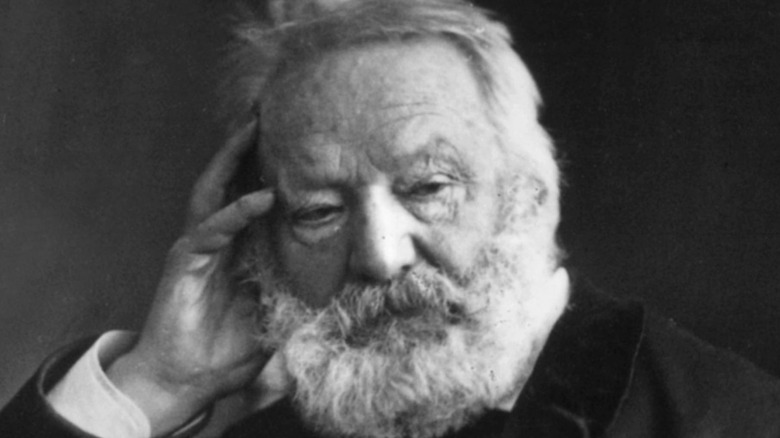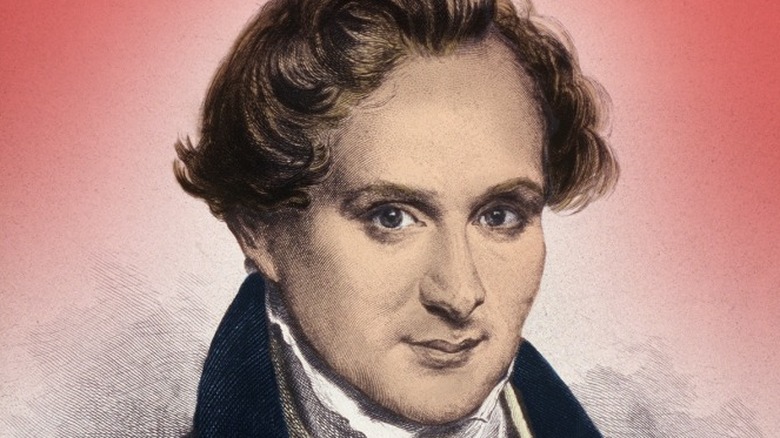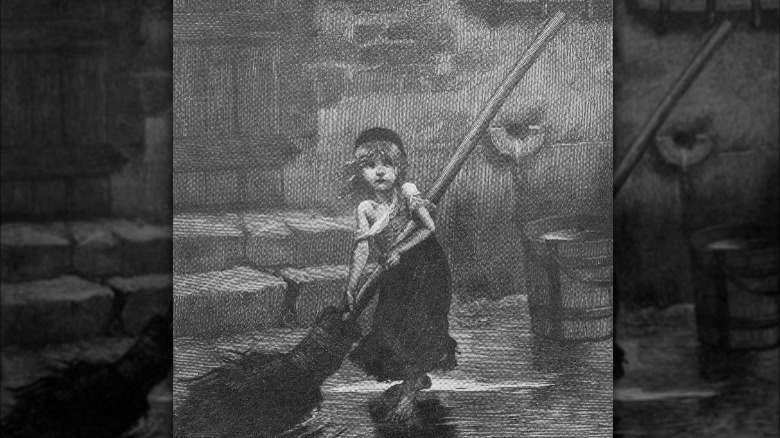Why Victor Hugo Once Switched Political Sides
Famed French writer Victor Hugo grew up in a politically divided home, and this experience may have shaped his own ideas about politics. His father was an officer under Napoleon during the days of the first republic, and his Catholic mother supported the French royal family, which had fallen from power in 1792 (via International Socialist Review). His father remained steadfastly behind Napoleon as Napoleon moved the country through different forms of government to become the emperor of France. At first, Victor Hugo seemed to follow in his mother's footsteps, but, as he aged, he became much more liberal.
After spending years following his father to different military posts, Hugo settled with his mother in Paris in 1803 when his parents separated (via the New World Encyclopedia). His mother raised him to respect both the monarchy and the church. The House of Bourbon returned to power when Hugo was barely in his teens (via Britannica). In 1824, Hugo published a collection of poems that had royalist leanings. This work earned him the favor of Louis XVIII, who gave him financial support.
Victor Hugo became an outspoken critic of the government
After his mother's death, Hugo soon felt freer to explore his own ideas and opinions. Some of his early works faced censorship because they were seen as a negative portrayal of the monarchy (via the New World Encyclopedia). The play, "Marion de Lorme," was initially banned in 1829, and the 1832 play, "Le Roi S'Amuse," was only allowed to have one performance before it was closed down for what was seen as mocking the monarchy. His novel, "Notre-Dame de Paris," also known by some in English as "The Hunchback of Notre Dame," was published around this time, and it became a big success.
Despite his social criticisms about the monarchy, Hugo remained popular with the rulers of France. King Louis-Philippe gave him a peerage in 1841, which allowed him to serve as a Pair de France in the Higher Chamber (via the New World Encyclopedia). He used this political opportunity to speak out on issues important to him, including free speech and the end of the death penalty. After the 1848 Revolution, Hugo continued his political work as a representative of Paris in first the Constituent Assembly and then in the Legislative Assembly (via Britannica). But once a supporter of Prince Louis-Napoleon, his attitudes made a dramatic shift when the prince sought total power in 1851. Hugo openly opposed this move toward an authoritarian state, and he went into exile, fearing for his life.
Victor Hugo returned home as a national hero
Hugo eventually settled on Guernsey, one of the Channel Islands, but he never forgot the political situation in France. Even in exile, he wrote against Napoleon III (via Britannica). Hugo also completed his masterwork, "Les Misérables," while living abroad. Published in 1862, the novel became an international hit with its gritty portrayal of French society through the struggles of its characters.
Hugo finally returned to France in 1870 after Napoleon III had been removed from power. He briefly returned to politics and continued to champion the ideals of liberty and justice. When he died in 1885, there was a tremendous outpouring of grief for this hero of France. His coffin was placed under the Arc de Triomphe as if he were a head of state. And more than 2 million people lined the streets of Paris for his funeral procession. Once a poet who appealed to kings, in the end, Hugo was heralded for creating literature that delved into the challenges and hardships of everyday citizens.


